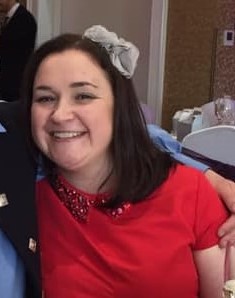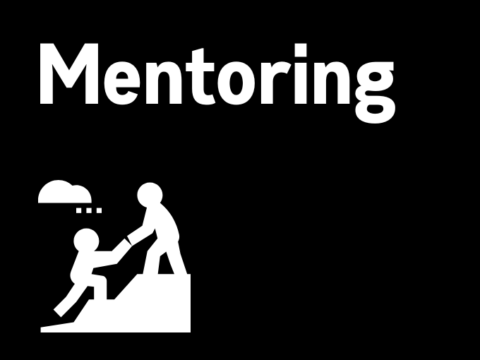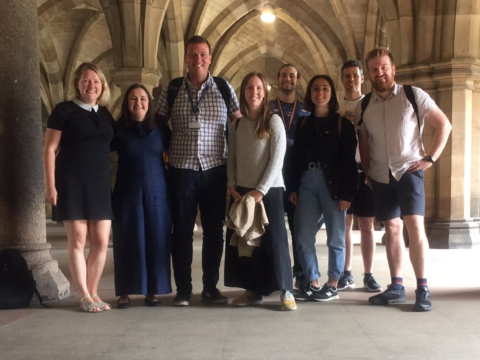 Name:
Name:
Dr Fiona Kerr
Job Title:
Research Fellow
Place of work / study:
Glasgow Caledonian University
Area of research:
Molecular causes of Alzheimer’s disease
How is your work funded:
My work is funded by a Glasgow Caledonian University Research Fellowship & PhD studentship, a Tenovus Scotland Small Pilot Grant, an ARUK Scotland Network Small Grant. I have also had Vacation Studentship funding from the Biochemical Society and the Wellcome Trust.
Tell us a little about yourself:
I am a Research Fellow and new PI at Glasgow Caledonian University, with a focus on studying the molecular links between ageing and Alzheimer’s disease. Previously, I undertook my PhD under the supervision of Prof Simon Lovestone, then at the Institute of Psychiatry Kings College London, where I investigated the connections between diabetes mellitus, altered insulin signalling and development of tau pathology in cell culture and animal models. I then spent 10 years as a post-doctoral research associate in the lab of Prof Linda Partridge, at the Institute of Health Ageing University College London, where I investigated the causal role of longevity genes in preventing AD pathology using the fruit fly, Drosophila Melanogaster. My lab now aims to translate my findings to human systems, using neuronal cell culture models of AD, but I hope also to get back to using the might fly in the near future! Outside the lab I am Glasgow Co-Representative on the Alzheimer’s Research UK Scotland Network, a member of the Carnegie Research Trust Research Assessor Panel (Science, Engineering & Technology) and an ECR rep for the Scottish Universities Life Sciences Association (SULSA).
Tell us a fun fact about yourself:
I’m a Mum of two walking the work-life tightrope. This means I spend lots of my spare time drawing, making, dinosaur digging and going to tea parties!
Why did you choose to work in dementia?
As an undergraduate Pharmacology student I was fascinated by neuroscience and how we make memories. But I also wanted to make a difference and play a part in developing drugs to benefit human health. Dementia is a major unmet medical need now more than ever before. So it’s rewarding to contribute even a small part towards knowledge in this area, and to think that this may lead to life-changing treatments in future.

 Print This Post
Print This Post
